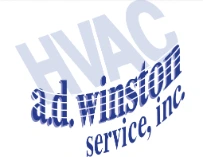HVAC systems are often the workhorses of your commercial buildings. In New York, HVAC systems run around the clock, year-round to maintain a comfortable and safe climate for your tenants and their equipment.
This operating schedule takes a toll. To maintain peak efficiency, HVAC systems must be inspected and maintained at least twice per year. Moreover, preventative HVAC maintenance can substantially reduce downtime for HVAC service and repairs.
Here are three ways HVAC preventative maintenance can keep HVAC systems running:
Replace Filters and Belts
Filters are meant to be replaced. As they collect dust, dirt, and debris, the volume of flow through the HVAC system drops. This causes the HVAC system to work harder to cool or heat a space. This will make the HVAC system inefficient. Worse yet, dirty filters can cause blower motors and compressors to overheat, reducing their life expectancy.
Belts also have a limited life span. Belts must remain strong, yet flexible, to efficiently transfer energy from motors to fans and compressors. When belts are loose, brittle, or stiff, energy is wasted. Worn belts can also cause HVAC systems to become noisy. Inspecting and changing belts can keep an HVAC system running efficiently and quietly.
Lubricate
Your car needs its oil changed every three months. But your car does not run 24 hours a day, 365 days per year like you HVAC system.
Lubrication around bearings can break down due to heat and dust can contaminate lubricants turning them into a sticky sludge. As lubricants deteriorate, friction heat increases. Left unaddressed, heat can cause parts to warp or seize. Also, motors have to work harder to overcome friction, opening the door to overheated motors. Lubricating an HVAC system on a regular schedule can minimize the risk of breakdowns and keep the system running efficiently.
Check Refrigerant Levels
Refrigerant is the lifeblood of the HVAC system. In a reversible heat pump system, refrigerant removes heat from air to cool it during the summer, and transfers heat to air to warm it during the winter.
Without the right volume of refrigerant at the right pressure, an HVAC system works poorly or can even stop working at all. Tenant complaints can pile up, and your HVAC system must be taken offline for repairs.
Just as importantly, refrigerant can pose a risk to health and the environment. Although newer refrigerants are safer than Freon and some of the older chemicals that have been phased out, HVAC refrigerants can irritate the lungs, eyes, and skin, are often flammable, and can contribute to climate change because they are greenhouse gases.
Checking refrigerant levels and repairing leaks can keep an HVAC system operating safely and in an environmentally-friendly manner.
Preventative HVAC maintenance can save money in the long run by keeping HVAC systems operating efficiently and reducing costly repairs and downtime. Moreover, HVAC maintenance can ensure that the HVAC system operates safely for tenants and the environment.



